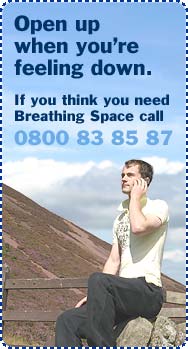Abuse
Bullying

Quick links on this page:
Related page:
What is bullying?
Bullying behaviour is often deliberate and repeated but unintentional actions can be harmful and behaviour displayed just once can also have a lasting and harmful impact on a person.
Bullying behaviour is distinct from violence but any action which causes a person to feel hurt, humiliated or afraid can be perceived as bullying behaviour.
Many different actions can cause a person to feel bullied:
• Name-calling and verbal aggression
• Spreading gossip and rumours
• Excluding and isolating
• Cyberbullying through mobile phones, email and social networking sites
• Excluding and isolating
• Targeting someone because of who they are or who they are perceived to be
Other behaviours can also be considered bullying – the most important factor is the impact an action has on other people.
How might this affect me?
Bullying has many potential impacts on people targeted by the behaviour as well as others around them. All of these impacts come under one of three categories of Resisting, Conforming with the bullying behaviour or Withdrawing from it.
- Emotional Impacts – Hurt, fear, anger, loneliness, intimidated, humiliated, ashamed, guilty.
- Psychological Impacts – Stress, anxiety, anticipation of being bullied again, low self-esteem, loss of self-confidence, lowering of aspirations, depression, self-harm and suicidal thoughts.
- Social Impacts – Isolation and exclusion, withdrawal from activities, relationships and routines, truancy or absenteeism from school or work, loss of motivation, forcing you to conform or do things you do not want to do.
- Physical Impacts – Stress-related illness such as skin rashes, stomach problems and headaches, lethargy, sleep disturbance.
Bullying towards children and young people
What can you do?
- Talk to someone you trust to make them aware of the behaviour and the effect it is having on you. Even if you do not want them to do anything, being listened to can help you to explore how you feel.
- Your school or youth group might have Peer Mentors or ‘Buddies’. Sometimes talking to another young person can make a difference.
- Remember you have a right to be safe and the adults in your life have a responsibility to protect you from bullying behaviour. Being called a “tell-tale” or “grass” is just a way of protecting people who are displaying bullying behaviour – don’t let this stop you from getting the help you need.
- It is understandable to worry about an over-reaction if you report bullying but most adults will be caring and helpful. If you take this step be clear about what you would like them to do and ask them to take this into account.
- If you feel comfortable doing so, challenge the person displaying the behaviour calmly and ask them to stop.
- Changing your routine to avoid the bullying behaviour may work in the short-term but will rarely be a solution. The emphasis needs to be on changing the behaviour and you have a right to seek help with this from a parent/carer, teacher or friend.
- If an adult or friend gives you advice that you feel is unhelpful , communicate to them why you do not think this will work.
- Be careful when using mobile phones and the internet. Giving information or pictures to people you do not know or trust can put you at risk of cyberbullying. All social networking sites like Bebo and Facebook have advice for young people on how to stay safe.
- Contact Childline to talk to someone in confidence and get help to decide what to do. Websites can give you the chance to read about what other people did and this too can help.
- Keep a copy of web pages, emails or texts as evidence, either for the adults you tell or websites to act on.
Visit Childline Scotland – www.childline.org.uk and www.respectme.org.uk children’s section
If you need help right now, visit the Immediate Help page.



